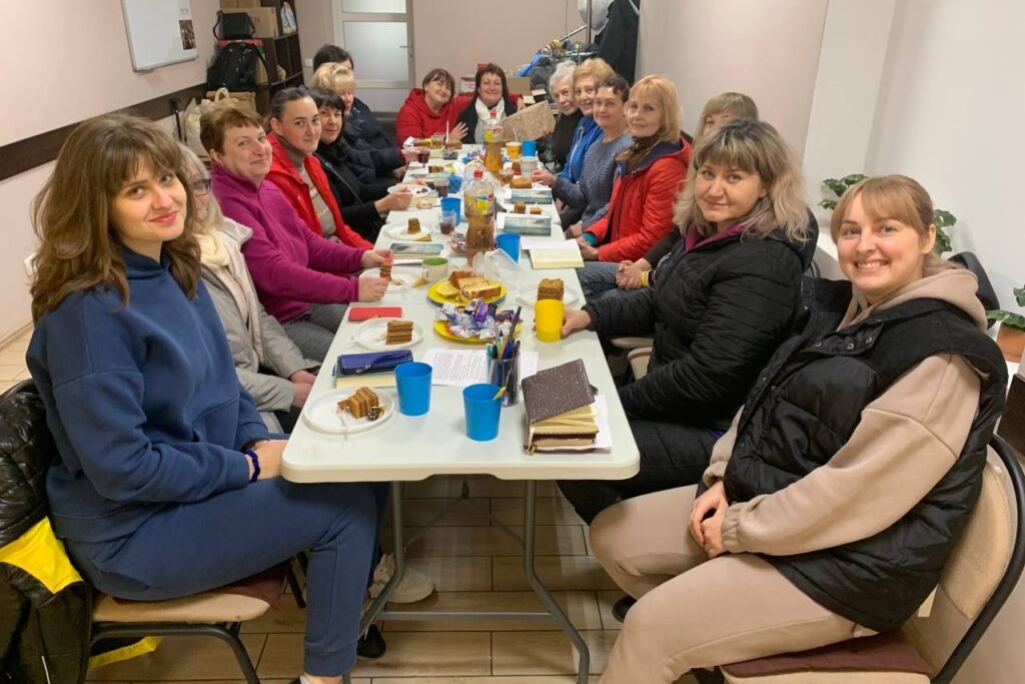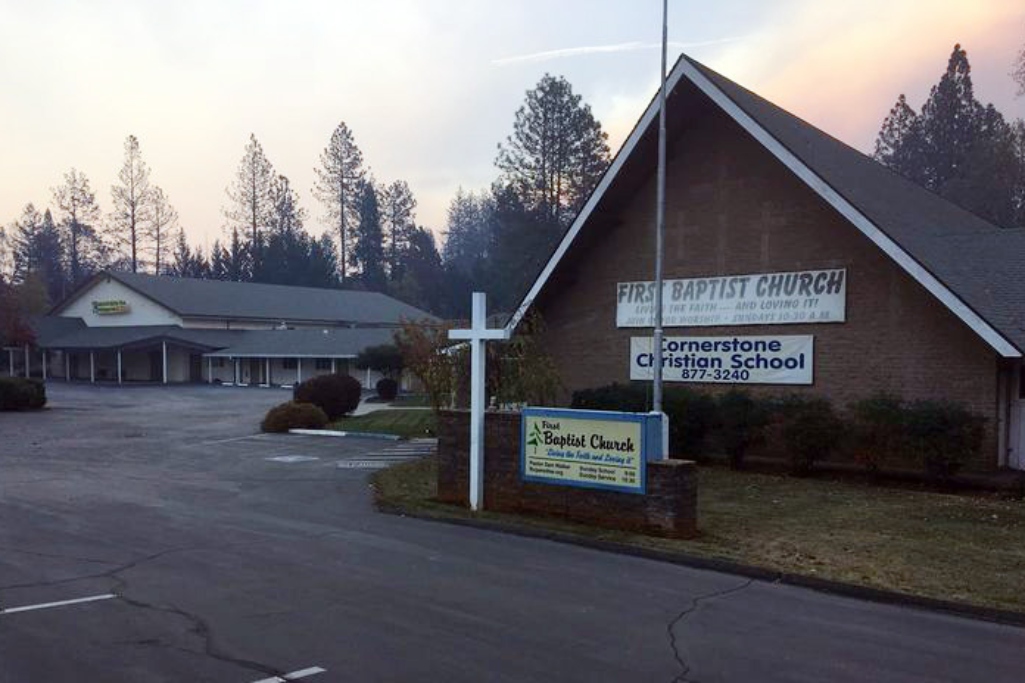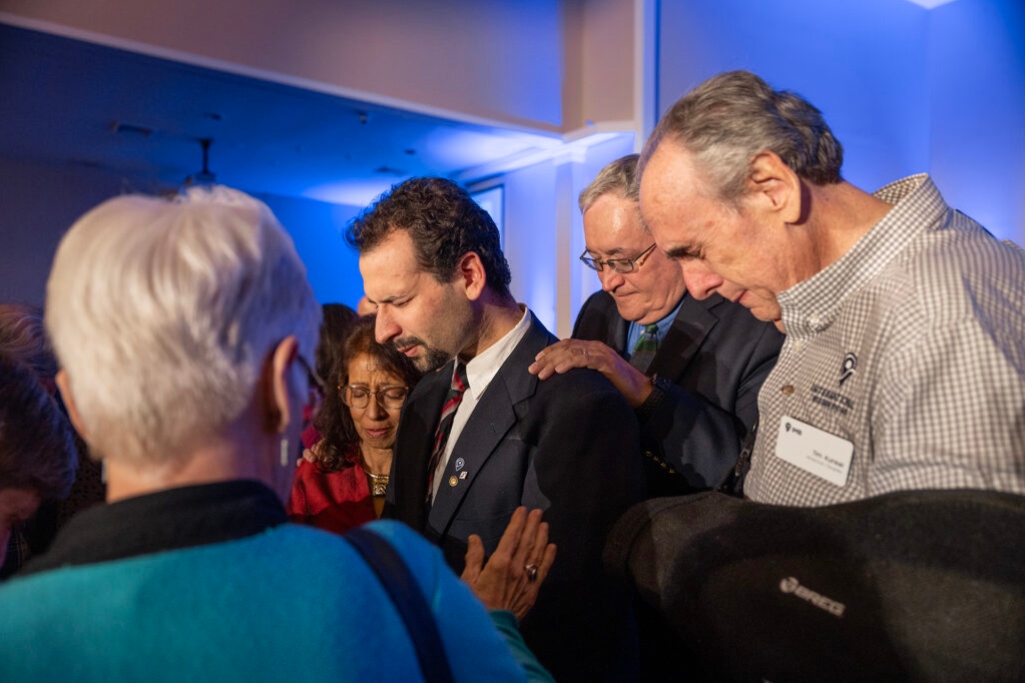
Women gather for a support and Bible study group at the WeCare Center in Druzhkivka, Ukraine.
KYIV, Ukraine (BP) — For Luba, the pain of the past two years is hard to put into words. Her husband was killed when their house in Bakhmut, Ukraine, was bombed, and Luba was forced to flee her homeland. But thanks to Send Relief partners who helped her along the way, Luba says she now believes in God because she’s seen His love in the people who helped her.
Luba’s circumstances are not uncommon. Sources indicate that the number of confirmed civilian deaths in Ukraine surpassed 10,000 in November 2023, with numbers potentially being much higher. The continuing impacts of the war have left the country in urgent need, yet with an extreme openness to the Gospel.
Since the start of the full-scale Russian invasion two years ago, Send Relief, Southern Baptists’ compassion ministry arm, has completed more than 100 projects in and around Ukraine, impacting 1.9 million people and resulting in more than 10,000 new believers.
“We’ve seen more people come to faith in Christ than ever before,” said International Mission Board missionary Mike Domke, who has spent 15 years in Ukraine. “There’s also more churches being born now than before … there’s a lot of spiritual openness.”
On the flip side, as the war reaches the two-year mark, believers and unbelievers alike are experiencing discouragement and depression. “Emotionally, the people are at a bad place right now,” Domke said. “Probably the worst since the beginning of the war … that would be one prayer request, that they don’t lose hope.”
Yaroslav Pyzh, president of Ukrainian Baptist Theological Seminary and one of Send Relief’s ministry partners in Ukraine, says that the help they’re able to provide Ukrainians through Send Relief not only meets dire physical needs but also reminds people that they are not alone and someone cares for them.
“The help is critical,” Pyzh said, “but it’s more than just help. It’s a message of hope.”
Southern Baptists’ gifts to Send Relief have helped the seminary open five WeCare centers in eastern Ukraine in areas directly affected by the war. These centers are designed to unite the local church with city authorities and civilians, and they deliver a broad range of humanitarian help – from food and hygiene supplies to trauma and spiritual counseling, Bible study and support groups and more.
These centers have also become a haven for children in areas where schools can no longer operate. As they continue their studies online, children come to these WeCare centers for stable internet and meals as well as to learn in a warm environment that also has a bomb shelter.
“Giving bread and giving food is critical,” Pyzh said. “But the idea of these WeCare centers is more than that. We would like people to know Christ and have hope and abundant life.”
Centers like these are part of a larger story of churches in and around Ukraine responding to the physical and spiritual needs of hurting people. Many of Send Relief’s projects for Ukraine have included food distribution through local churches, totaling 1.3 million food boxes and 1.9 million hot meals provided since the invasion.
To date, Send Relief’s response has involved 1,389 national churches — churches like the one Natalia found after leaving her home in eastern Ukraine to find safety. In addition to providing food and shelter for internally displaced persons, the church coordinated a 90-day program that included one-on-one trauma counseling, job skills training and worship and prayer gatherings. Natalia now says she repented of her sins and aspires to serve God, study the Bible and live a life with purpose.
“It’s inspiring to see how Ukrainian churches have become centers of light and hope, as believers have taken great risks and sacrifices to move toward and serve their suffering neighbors,” said Jason Cox, Send Relief’s vice president of international ministry. “It’s been a joy for Send Relief to play a role in supporting these brothers and sisters, and it’s only made possible by the incredible generosity of U.S. churches.”
As the war progresses, the needs of the Ukrainian people grow. Domke, the IMB missionary, said that the war has caused a dramatic spike in the cost of living, while jobs are hard to find.
Many are struggling to provide for the basic needs of their families while also dealing with the psychological effects of living through war. Families are separated as women and children seek safety and men and fathers are often drafted to fight.
“They’re under this continual stress of air alarms and bombings,” Domke said. “The emotional part of that is just daunting, and it’s wearing on people.”
“We are still doing Send Relief projects,” he said. “And money is still needed because the needs are still very great. I encourage supporters to continue giving. Send Relief is a great way to help, and we’re seeing good results.”
To help Send Relief’s ongoing work in Ukraine, give through Send Relief’s website.
(EDITOR’S NOTE – Anna Skudarnova writes for the North American Mission Board.)


